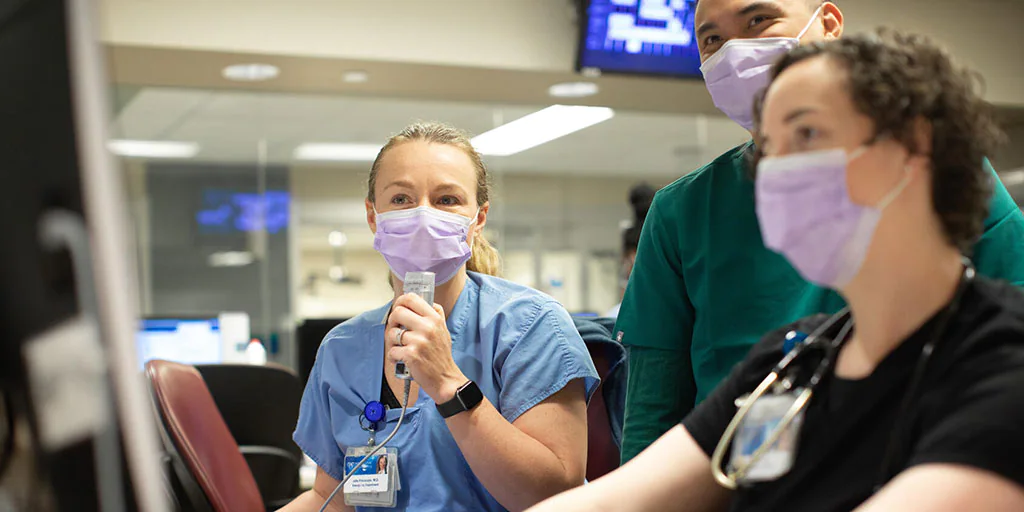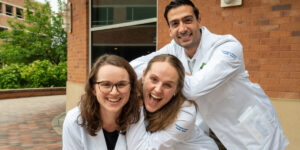In the world of medicine, the field of Emergency Medicine is dynamic, fast-paced, and ever-evolving. For those aspiring to excel in this exhilarating domain, securing a spot in an Emergency Medicine Residency program is the pivotal step towards a rewarding and impactful career. This comprehensive guide will take you on a journey through the intricacies of Emergency Medicine Residency, offering insights, tips, and guidance for professional development in this challenging but rewarding field.
The Journey Begins
Embarking on the path of an Emergency Medicine Residency is not for the faint of heart, but it’s a journey filled with immense potential and the opportunity to make a real difference in people’s lives. As you set your sights on this career, there are crucial aspects you need to be aware of:
Preparing for the Application
Your application to an Emergency Medicine Residency program is the first impression you’ll make on your prospective mentors. Ensure it reflects your passion, commitment, and qualifications. Key components of your application include:
- The Perfect Personal Statement: Craft a personal statement that vividly portrays your genuine interest in Emergency Medicine, highlighting relevant experiences and your motivation to serve in this field.
- Exceptional Letters of Recommendation: Secure strong letters of recommendation from mentors who can attest to your skills, work ethic, and dedication.
- Transcripts and Test Scores: Your academic background and standardized test scores should showcase your competence and potential as a resident.
Research the Right Programs
Not all Emergency Medicine Residency programs are created equal. Each program has its unique culture, faculty, and opportunities. Research thoroughly to find a program that aligns with your goals and values.
The Interview Process
Upon receiving interview invitations, it’s crucial to prepare meticulously. The interview phase is where you have the chance to shine. Be ready to:
- Demonstrate Your Passion: Express your sincere enthusiasm for Emergency Medicine and your eagerness to learn and grow within the program.
- Highlight Your Skills: Showcase your clinical, interpersonal, and problem-solving skills, which are vital in the high-pressure environment of an emergency room.
- Ask Thoughtful Questions: Prepare insightful questions to ask the interviewers about the program, showing your genuine interest.
The Life of a Resident
Life as an Emergency Medicine resident is demanding but deeply rewarding. Here’s what you can expect during your residency:
- Rotations: You’ll undergo various clinical rotations, gaining exposure to diverse cases and building your expertise.
- Shift Work: Be prepared for shift work, as emergencies don’t follow a 9-to-5 schedule.
- Learning Opportunities: Continuously seek opportunities for learning, whether it’s through hands-on experience or medical conferences.
- Teamwork: Effective teamwork is crucial. Collaborate with your colleagues and nurses to ensure the best patient care.
Post-Residency
Completing your Emergency Medicine Residency is a significant achievement, but it’s just the beginning. Afterward, you can explore various career options:
- Fellowships: Consider subspecialty fellowships to further enhance your skills and knowledge.
- Academic Pursuits: If teaching and research appeal to you, academic positions in medical institutions might be the right path.
- Clinical Practice: Many choose to work in busy emergency departments, applying their expertise to a broad spectrum of medical conditions.
Wrapping It Up
In conclusion, your journey towards a successful career in Emergency Medicine starts with securing a place in a respected residency program. Your dedication, skills, and passion will be the driving forces behind your progress in this dynamic field. Remember, it’s not just a career choice; it’s a commitment to making a meaningful impact on countless lives during their most vulnerable moments.
In the world of medicine, the field of Emergency Medicine is dynamic, fast-paced, and ever-evolving. For those aspiring to excel in this exhilarating domain, securing a spot in an Emergency Medicine Residency program is the pivotal step towards a rewarding and impactful career. This comprehensive guide will take you on a journey through the intricacies of Emergency Medicine Residency, offering insights, tips, and guidance for professional development in this challenging but rewarding field.
Embarking on the path of an Emergency Medicine Residency is not for the faint of heart, but it’s a journey filled with immense potential and the opportunity to make a real difference in people’s lives. As you set your sights on this career, there are crucial aspects you need to be aware of:
Your application to an Emergency Medicine Residency program is the first impression you’ll make on your prospective mentors. Ensure it reflects your passion, commitment, and qualifications. Key components of your application include:
- The Perfect Personal Statement: Craft a personal statement that vividly portrays your genuine interest in Emergency Medicine, highlighting relevant experiences and your motivation to serve in this field.
- Exceptional Letters of Recommendation: Secure strong letters of recommendation from mentors who can attest to your skills, work ethic, and dedication.
- Transcripts and Test Scores: Your academic background and standardized test scores should showcase your competence and potential as a resident.

Not all Emergency Medicine Residency programs are created equal. Each program has its unique culture, faculty, and opportunities. Research thoroughly to find a program that aligns with your goals and values.
Upon receiving interview invitations, it’s crucial to prepare meticulously. The interview phase is where you have the chance to shine. Be ready to:
- Demonstrate Your Passion: Express your sincere enthusiasm for Emergency Medicine and your eagerness to learn and grow within the program.
- Highlight Your Skills: Showcase your clinical, interpersonal, and problem-solving skills, which are vital in the high-pressure environment of an emergency room.
- Ask Thoughtful Questions: Prepare insightful questions to ask the interviewers about the program, showing your genuine interest.
Life as an Emergency Medicine resident is demanding but deeply rewarding. Here’s what you can expect during your residency:
- Rotations: You’ll undergo various clinical rotations, gaining exposure to diverse cases and building your expertise.
- Shift Work: Be prepared for shift work, as emergencies don’t follow a 9-to-5 schedule.
- Learning Opportunities: Continuously seek opportunities for learning, whether it’s through hands-on experience or medical conferences.
- Teamwork: Effective teamwork is crucial. Collaborate with your colleagues and nurses to ensure the best patient care.
Completing your Emergency Medicine Residency is a significant achievement, but it’s just the beginning. Afterward, you can explore various career options:
- Fellowships: Consider subspecialty fellowships to further enhance your skills and knowledge.
- Academic Pursuits: If teaching and research appeal to you, academic positions in medical institutions might be the right path.
- Clinical Practice: Many choose to work in busy emergency departments, applying their expertise to a broad spectrum of medical conditions.
In Conclusion
Your journey towards a successful career in Emergency Medicine starts with securing a place in a respected residency program. Your dedication, skills, and passion will.




